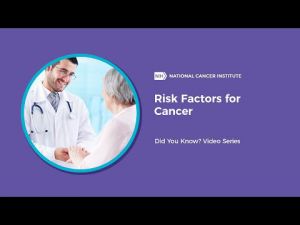About-cancer/causes-prevention/risk/zh
癌症的危险因素
通常不可能确切地知道一个人为什么会患癌症而另一个人却不会。 但是研究表明,某些危险因素可能会增加一个人患癌症的机会。 (也有一些因素与较低的癌症风险有关。这些因素有时被称为保护性危险因素,或仅仅是保护性因素)。
癌症的危险因素包括接触化学物质或其他物质,以及某些行为。 它们还包括人们无法控制的事物,例如年龄和家族史。 某些癌症的家族病史可能是可能遗传的癌症综合症的征兆。 (有关可导致癌症的遗传遗传突变的更多信息,请参见“遗传性癌症综合征”部分)。
大多数癌症风险(和保护性)因素最初是在流行病学研究中确定的。 在这些研究中,科学家研究了一大批人,并将罹患癌症的人与未患癌症的人进行了比较。 这些研究可能表明,与未罹患癌症的人相比,罹患癌症的人或多或少会以某种方式行事或暴露于某些物质。
Such studies, on their own, cannot prove that a behavior or substance causes cancer. For example, the finding could be a result of chance, or the true risk factor could be something other than the suspected risk factor. But findings of this type sometimes get attention in the media, and this can lead to wrong ideas about how cancer starts and spreads. (See the Common Cancer Myths and Misconceptions page for more information.)
When many studies all point to a similar association between a potential risk factor and an increased risk of cancer, and when a possible mechanism exists that could explain how the risk factor could actually cause cancer, scientists can be more confident about the relationship between the two.
The list below includes the most-studied known or suspected risk factors for cancer. Although some of these risk factors can be avoided, others—such as growing older—cannot. Limiting your exposure to avoidable risk factors may lower your risk of developing certain cancers.
- Age
- Alcohol
- Cancer-Causing Substances
- Chronic Inflammation
- Diet
- Hormones
- Immunosuppression
- Infectious Agents
- Obesity
- Radiation
- Sunlight
- Tobacco
Related Resources
Cancer Prevention Overview (PDQ®)–Patient Version
